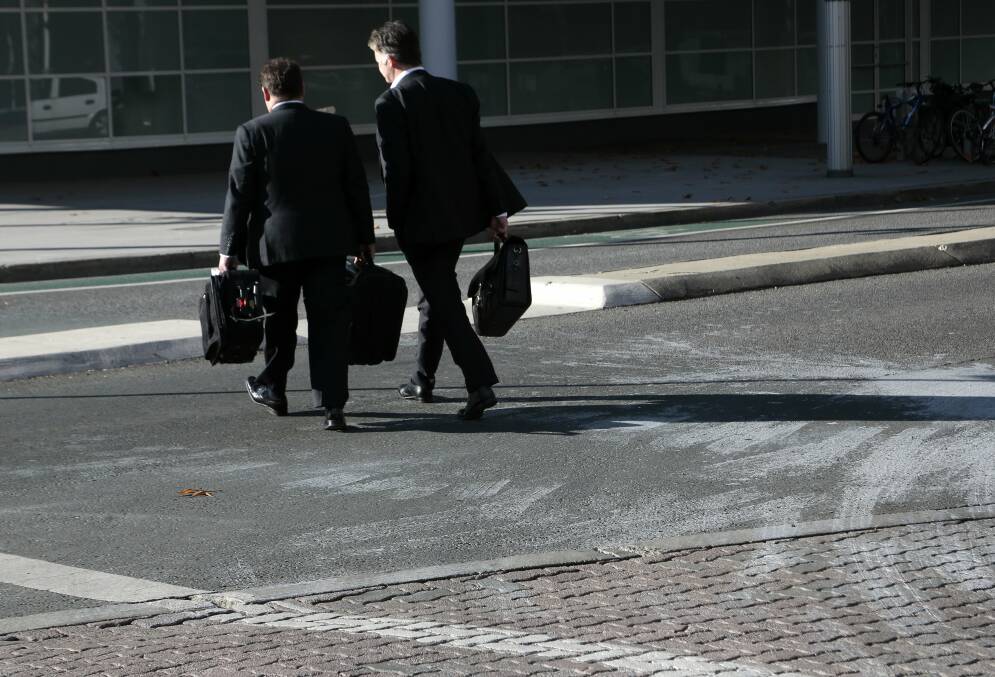
Before we get ahead of ourselves with a four-day work week, experts say there's an important first step.
The ACT should first seek to limit working hours to 38 a week before attempting to reduce the number of days or recast the working week, experts have told a parliamentary inquiry.
The submission from the Australian National University's national centre for epidemiology and population health recommended a staged approach to reducing long work hours and a trial across the information technology, nursing and teaching workforces.
"A four-day (38-hour maximum) week would be one model among several that could be trialled," the group's submission said.
"We anticipate that a focus on reducing long hours to the maximum 38-hour week will have direct improvements on the wellbeing of the ACT community, with benefits for mental health and healthy lifestyles, employment and income equality, recruitment and retention, volunteering, quality of time use, unpaid work and caring, and work-life balance."
The submission said 40 per cent of employed Australians worked more than 38 hours a week, and men were more likely to work longer hours than women.
The 38-hour working week is the standard full-time hours outlined by the national employment standards.
"Long full-time hours also have a direct impact on workforce sustainability and equality of participation," the submission said.
"They erode health, contribute to chronic disease burdens and restrict opportunities for healthy lifestyles.
"Long work hours place pressure on families, resulting in a gender-linked exclusion of women from good jobs and men from family caregiving."
The submission - prepared by Professor Lyndall Strazdins, Dr Ginny Sargent, Helen Skeat and Amelia Yazidjoglou - recommended parallel trials in three workforces over a year to test shorter weeks before rolling out the restrictions in other workplaces.
Economist John Quiggin told the inquiry the four-day working week was "well within the realm of economic feasibility" and government should take the lead of breaking through employers' resistance to reducing working hours.
"The pandemic has also overturned long-standing assumptions about the nature of work, and about our relationships to work," Professor Quiggin's submission said.
"Most obviously, remote work has proved more successful than even its most optimistic advocates predicted. More generally, it has become clear that 'this is the way we've always done things' is not a sufficient basis for sticking to existing working arrangements."
Meanwhile, the Community and Public Sector Union said a simplistic approach to the length of the working week] will not work for all workers in the ACT's public service.
"The CPSU is of the view that a four-day work week should be a future goal of the future work week, but issues such as the casualisation of the workforce within the ACTPS as well as high workloads and the different nature of work for front line, part-time and rostered roles need to be resolved en route to realising it," the union's submission said.
Canberra would become one of the most progressive cities in the world if it adopted a four-day working week and could leverage the different work-life balance to attract quality staff, the ACT government has previously told the inquiry.
But the territory's public service would face increased costs with the "enormous change" and other challenges to implement the shorter week.
The Legislative Assembly's committee on economy and gender and economic equality is considering the future of the working week in an ongoing and self-referred inquiry.
The committee's 69-page discussion paper, published in June 2021, said there was merit in revisiting the conversation about the benefits and disadvantages of a shorter working week or a reduction in work hours.
Submissions to the inquiry close on December 16.
We've made it a whole lot easier for you to have your say. Our new comment platform requires only one log-in to access articles and to join the discussion on The Canberra Times website. Find out how to register so you can enjoy civil, friendly and engaging discussions. See our moderation policy here.







